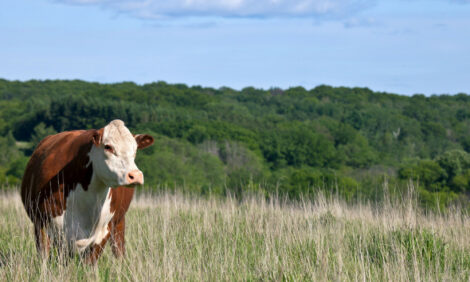



Schmallenberg Back in the Spotlight
UK - The news that Schmallenberg virus (SBV) has over-wintered in the UK has meant that the new disease is back in the spotlight, as scientists and industry professionals discuss what can be done to limit the impact of the disease on UK livestock. The total number of affected farms in the UK is 276.National Farmers' Union (NFU) animal health adviser Catherine McLaughlin said more needed to be done to identify where SBV is circulating to help farmers plan and avoid livestock contact with midges that bite and infect the animal with the virus.
“Scientists from the Royal Veterinary College and the Institute of Animal Health have confirmed that the Schmallenberg virus has over-wintered, she said. “This is concerning for our members who will be planning autumn breeding, a critical time. Animals infected with the virus during these early months of pregnancy are most at risk of producing deformed offspring and of having abortions. This is obviously a great worry for our members.
“However, early reports do show us that livestock that had the disease this year and last year will have developed immunity and this will help build a natural resistance here in the UK.
“What we need is more efficient and effective diagnostics on the ground identifying where the Schmallenberg virus is, and therefore likely to cause potential problems. This will be the best tool to help farmers in the fight against this disease this year. We also need to have the vaccine, which we understand has been developed to be licensed and approved as soon as possible. While this won’t help those farmers with infected animals, it will start to protect those in areas that have not yet seen the disease."
NFU Scotland has asked the Scottish Government to consider active surveillance so that Scottish livestock keepers can plan ahead should Schmallenberg virus (SBV) move north. The Union believes that Scottish livestock farmers would volunteer to be part of the surveillance effort.
NFU Scotland President Nigel Miller said that with no reported cases in Scotland, he has suggested to the government that the industry looks at using sentinel animals and monitor them for exposure to SBV.
"Active surveillance is important as it may allow flockmasters and herd managers to minimise any potential impact of SBV by modifying their breeding plans. Scottish action would also dovetail with any surveillance undertaken south of the Border."
Farmers across the UK are being asked to remain vigilant for signs of disease and if possible to test animals.
For more information on Schmallenberg, see the dedicated Schmallenberg page.
TheCattleSite News Desk


